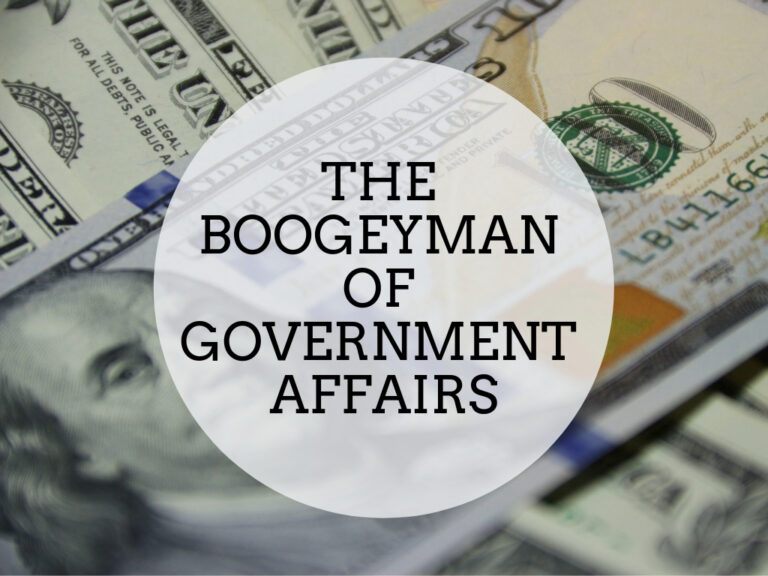
Government Affairs Best Practices in Japan
The Foreign Corrupt Practices Act (FCPA) is a U.S. bill passed in 1977, designed to prevent the bribery of foreign government officials. Bribery, in this sense, is “purchasing the influence or favor of foreign government officials for business-purposes.” The reach is broad: any U.S. corporation or individual operating in any foreign country. Violators of the FCPA can suffer an onslaught of consequences that could effectively lead to bankruptcy. Multinational companies engaged in government affairs in Japan must be wary of this fact, including any third-party government relations companies they hire to act on their behalf.
In 2018 alone, the Department of Justice (DOJ) and Securities and Exchange Commission (SEC) initiated a total of 54 enforcement actions under the guise of FCPA violations. At the same time, 16 companies were found guilty and ordered to pay fines totaling $2.89 billion as penalties!
In addition, 2 violators were Japanese corporations:
・Beam Suntory Inc. (USA) agreed to pay more than $8 million to resolve charges that its’ Indian subsidiary violated the FCPA by using third-party distributors to make illicit payments to increase sales orders, process licensing registrations, and acquire non-public data (7/2/2018).
・Panasonic Corp., the Japan-based company, agreed to pay more than $143 million to resolve FCPA charges involving a lucrative consulting position it offered to a government official at a state-owned airline to induce the official to help its U.S. subsidiary in obtaining and retaining business from the airline. (4/30/18).
See full list of penalties here: https://www.sec.gov/spotlight/fcpa/fcpa-cases.shtml
Uber was also under fire in late 2017. Their questionable practices in Japan (and in other countries in Asia) sparked a wide-running investigation by the DOJ.
Companies can, and will, get caught—when they do, it costs them a pretty penny. In this area (like in every other one), a single misstep could be detrimental to your company’s success in an already difficult foreign market.
The breadth of acts comprising bribery can include innocent and otherwise normal activities such as: going-out-for-drinks, golfing with colleagues, purchasing tickets for a fundraiser, and/or attending a wedding.
Where Does Japan Fall in the Mix?
In a recent report by Transparency International, Japan ranked 20th of the 180 countries listed with a score of 73 (0 being highly corrupt and 100 being squeaky clean).
While Japan is not under the microscope when it comes to extensive investigations on corrupt practices, some industries are prone to elicit more attention than others. This will mostly be the case when there are high profit margins, first-to-entry benefits, or a rapidly changing regulatory landscape. Here in Japan, for example, Energy and Life Science sectors are heavily monitored. Indeed the DOJ announced that Pharmaceuticals will be a major target in their investigations (which means they already are). Other industries that draw scrutiny include Integrated Resorts, Infrastructure, Aerospace & Defense, and IT.
How do I avoid these risks?
According to the SEC’s website, the FCPA can apply the label of “prohibited conduct” anywhere in the world to acts done by, or on behalf of, publicly-traded US companies (inclusive of their officers, directors employees, stockholders and agents). “Agents” can include any third party conduits, consultants, distributors, joint-venture partners, and others.
The key here is in self-policing.
Most Fortune 500 companies have an internal Government Affairs team, but they frequently rely on third-party service providers as well. Maintaining effective government relations is vital in bolstering a prestigious reputation, and third-party providers often give these companies access to more manpower, expertise and exclusive networks. The issue here is that the activities of third-party providers cannot be closely monitored. Your internal teams are trained, indoctrinated and carefully managed, but with specialists not being as closely monitored, their actions can give your company bad press, or worse—the DOJ knocking at your door. This is why it is absolutely essential to run proper due-diligence and choose an ethical firm without history, or suggestion, of malpractice or misconduct.
Japan is a tough market. The most sensitive area for FCPA is attempting to curry favors directly with government officials who have purview over your industry. Members of the Diet are the most frequent targets of corporate malfeasance, as are ministry bureaucrats. This can be very difficult to delineate because it is a massive grey-zone. To complicate matters further, developing relations is woven into the fabric of doing business here, as is returning favors, gift-giving, hosting dinners and buying drinks.
Those not engaged with a government affairs team will find themselves outplayed by competitors, especially Japanese companies, who are not covered by the FCPA (they have their own domestic version of it). Though tempting, there are risks and legal ramifications involved when attempting to cut corners. In order to succeed, you need someone on your side who knows what they are doing and can help you navigate the murky waters of Japan’s bureaucracy.
If you’re struggling to plan or implement your government affairs strategy, contact us, and we can work with you directly to ensure your firm has a comprehensive action-plan to achieve your objectives, without running afoul of international laws.
